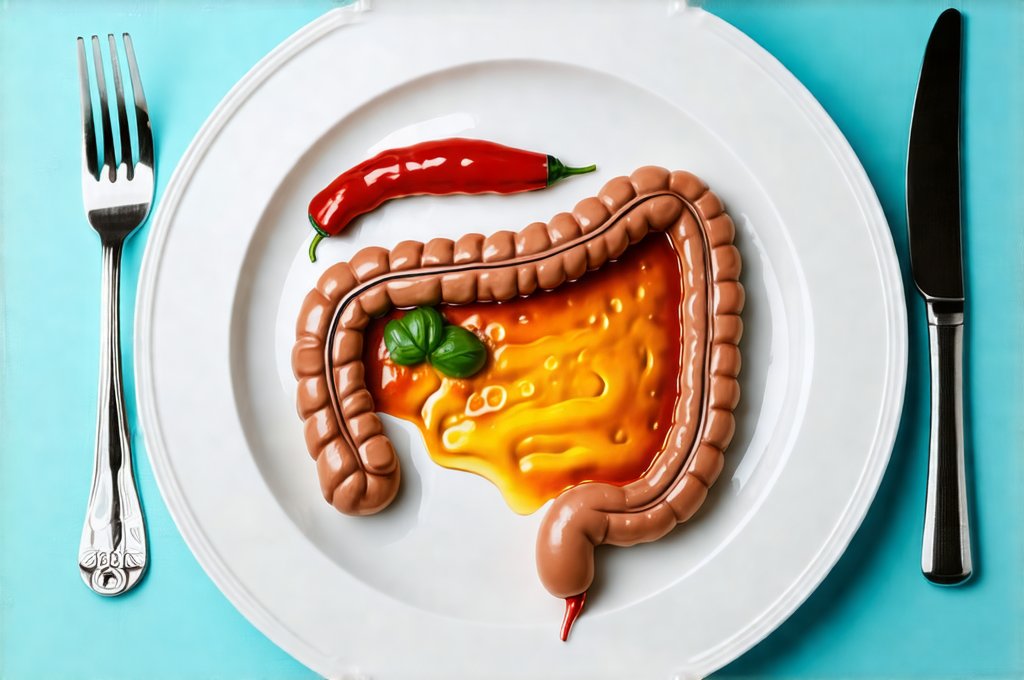We live in an age of constant stimulation. From scrolling through social media during meals to watching television while snacking, distractions are pervasive. While seemingly harmless, this habit of eating while distracted has a significant impact on our digestive processes – and not usually for the better. It’s easy to dismiss as a minor inconvenience, but consistently engaging in distracted eating can contribute to a cascade of issues ranging from bloating and indigestion to potentially affecting long-term metabolic health. Understanding how our brains and bodies respond when we disconnect from the act of eating is crucial for fostering healthier relationships with food and improving overall wellbeing.
The experience of truly mindful eating—fully present with the sights, smells, textures, and tastes of a meal –is often contrasted sharply with the hurried, unfocused nature of distracted eating. This isn’t simply about enjoying our food more; it’s fundamentally about allowing our bodies to properly prepare for and process what we consume. When attention is divided, essential digestive processes can become compromised, leading to less efficient nutrient absorption and a greater likelihood of discomfort. The modern world presents unprecedented levels of distraction, making intentional mindful eating practices more important than ever before.
The Physiology of Digestion & Distraction
Digestion isn’t just about the stomach breaking down food; it’s an incredibly complex process that begins before the first bite is taken. It starts with the cephalic phase—the anticipatory stage triggered by the sight, smell, thought, or even expectation of food. This phase initiates saliva production and gastric acid secretion, priming the digestive system for incoming nourishment. When we are distracted, this crucial preparatory stage is often bypassed or significantly diminished. The brain doesn’t fully register what’s coming, so the body isn’t adequately prepared to receive it.
This lack of preparation leads to several consequences. Reduced saliva production means less enzymatic breakdown of carbohydrates in the mouth, placing a heavier burden on later stages of digestion. Lower gastric acid secretion hinders protein breakdown and increases the risk of indigestion. Furthermore, when distracted, we tend to chew food less thoroughly. Proper chewing isn’t just about making food easier to swallow; it’s also about increasing surface area for digestive enzymes to work on, initiating the breakdown process mechanically. Insufficiently chewed food leads to larger particles entering the small intestine, requiring more effort and potentially leading to discomfort. Understanding how factors like impact of dairy can affect digestion is also important.
The vagus nerve plays a critical role in signaling between the brain and gut, coordinating digestive functions. Distraction disrupts this communication pathway. When attention is focused elsewhere, signals from the stomach and intestines regarding fullness or satiety are less effectively relayed to the brain. This can result in overeating, as we don’t register when we’re actually satisfied until long after consuming more than our bodies needed. It also impacts how efficiently nutrients are absorbed because the digestive system isn’t functioning optimally, leading to potential deficiencies over time. Meal timing can influence this process as well.
The Impact on Gut Microbiome
The gut microbiome—the trillions of bacteria residing in our digestive tract—is increasingly recognized as a vital component of overall health. These microorganisms play a role in everything from immune function to mental wellbeing. What we eat directly influences the composition and diversity of this microbial ecosystem, and how well we digest food impacts that influence. Poorly digested food, often a consequence of distracted eating, can lead to an overgrowth of undesirable bacteria in the gut.
- Undigested carbohydrates ferment in the colon, producing gas and bloating.
- This fermentation process feeds specific types of bacteria, potentially disrupting the delicate balance of the microbiome.
- A disrupted microbiome is linked to inflammation, compromised immunity, and even mood disorders.
Furthermore, when food isn’t properly broken down, larger particles can irritate the gut lining, increasing intestinal permeability—often referred to as “leaky gut.” This allows undigested food particles and toxins to enter the bloodstream, triggering an immune response and contributing to systemic inflammation. Restoring a healthy gut microbiome requires mindful eating practices that support optimal digestion. Conditions like cancer can also significantly impact this ecosystem.
Disconnecting From Satiety Signals
One of the most insidious effects of distracted eating is its interference with our natural satiety mechanisms. Our bodies are equipped with sophisticated systems for regulating hunger and fullness, but these systems rely on attentive awareness of internal cues. When we’re engrossed in a screen or conversation, we often override these signals, continuing to eat even when we’re no longer physically hungry.
This disconnect can lead to chronic overeating and contribute to weight gain over time. It also desensitizes us to our body’s natural hunger and fullness cues, making it harder to regulate appetite in the future. Studies show that people who eat while distracted tend to consume more calories overall compared to those who focus on their meals.
- Satiety hormones like leptin are less effectively triggered when eating distractedly.
- The brain doesn’t receive clear signals indicating fullness, leading to continued consumption.
- This creates a vicious cycle of overeating and diminished awareness of internal cues. Sleep patterns also play a role in hormonal regulation.
Mindful Eating as an Antidote
The good news is that these negative effects can be mitigated by cultivating mindful eating habits. It’s not about eliminating all distractions entirely (though minimizing them is helpful); it’s about intentionally creating space for focused attention during mealtimes. This involves:
- Eliminating Distractions: Turn off the TV, put away your phone, and find a quiet place to eat.
- Slowing Down: Take smaller bites, chew thoroughly, and savor each mouthful.
- Paying Attention: Focus on the colors, textures, smells, and tastes of your food. Notice how it makes you feel.
- Listening to Your Body: Stop eating when you’re comfortably full, not stuffed.
Mindful eating isn’t a diet; it’s a practice—a way of relating to food that honors both our physical needs and the experience of nourishment. It takes conscious effort, but the benefits are well worth it: improved digestion, enhanced satiety, and a more peaceful relationship with food. Prioritizing mindful presence during mealtimes is an investment in overall health and wellbeing. Factors like high-fat foods can also influence how we experience digestion, so awareness is key. Finally, understanding the impact of smoking on digestive health provides a broader context for healthy habits.


















